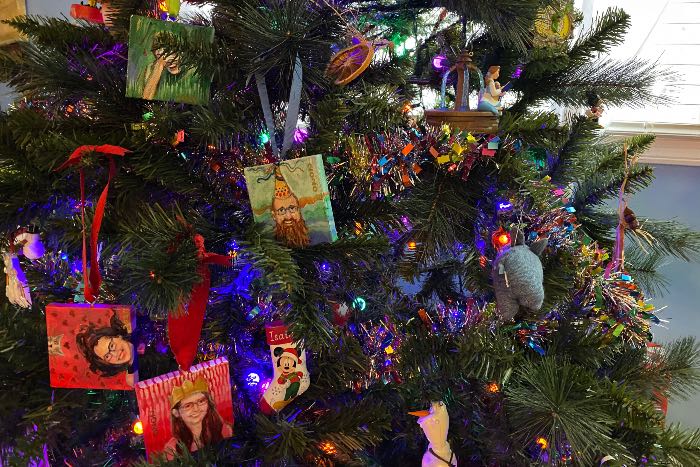
There’s something worse than stealing Christmas.
Episode 48 of the Make Saints podcast: “The Grinch isn’t the enemy”
the episode script
One of my favorite Christmas stories is How the Grinch Stole Christmas by Dr. Seuss. We watch the Boris Karloff movie and the new one by the Despicable Me team several times each year. And I realized that its lesson means something different today.
—
I’m going to assume you know the story. That the Grinch hates Christmas, tries to steal it by stealing all the presents and decorations, but inevitably fails to truly steal the day. Because Christmas can’t be stolen. It’s in our hearts.
This sentiment rings true for anyone who has found Christmas to be magical. Anyone who knows the beauty of giving, sharing, and loving gets this at the gut level. Deep down.
But the story’s subtle unspooling shows the sinister potential an antagonist more vile than the Grinch would use.
The Steal
The Grinch seeks to eliminate Christmas by removing its visible signs in the community. He isn’t stealing it to own it—this isn’t greed. He’s seeking to obliterate Christmas.
The message, then, that Christmas was not destroyed in Whoville that year, serves to suggest that Christmas can never be destroyed if it remains vibrant in the heart.
There are many real life examples of this indomitable Christmas spirit. Perhaps the most famous have occurred in times of great turmoil. The Christmas Truce during the Great War and faithful expressions during firebombings in World War II come to mind.
The question Seuss’ tail cannot hope to answer is whether the magic of Christmas would always win.
Is it possible for Christmas to be destroyed?
Obviously, it can.
Those who experience trauma, deep loss, or bitter division can speak to the ways the spirit of Christmas can feel entirely absent. I know many people who wouldn’t count themselves among the Whos without some serious cajoling.
Rather than render this story as the Grinch’s failed attempt to steal Christmas (and ultimately be redeemed), we might better recognize the fortitude of the Whos down in Whoville for embracing the Christmas spirit with empty hands.
They didn’t fight one another or cancel Christmas. They didn’t fear showing up with nothing or dwell on the absent presents. They chose to sing and lift each other up.
A more villainous Grinch would stoke fear.
And it might work. Christmas magic may be inevitable and true. But the resilience of the Whos is not. They chose to celebrate Christmas without stuff rather than choose anger at the thief or fear of being violated again.
They choose redemption over revenge. The Whos are more heroic and generous (and filled with the Christmas Spirit) than the Spirit itself just “works.”
This lesson is far more valuable for us than trusting in the indomitable power of Christmas. Because Christmas doesn’t have to be destroyed if we merely choose to act like it is. Or if we remain unmoved by the Spirit to embody the Christmas Spirit.
So many Christmas movies render the magic of Christmas as literally aligned with belief. But it isn’t belief exactly or whether the magic literally disappears. What is clearly true is that we can choose to be moved by the Spirit. And we can refuse to let fear destroy our gentle, generous hearts.
I hope your holidays are truly and profoundly happy. And may you be filled with a spirit of grace and truth.
—
I’m Drew Downs. Thanks for listening to Make Saints. Because (eternal) life is hard. And we could use all the help we can get.
